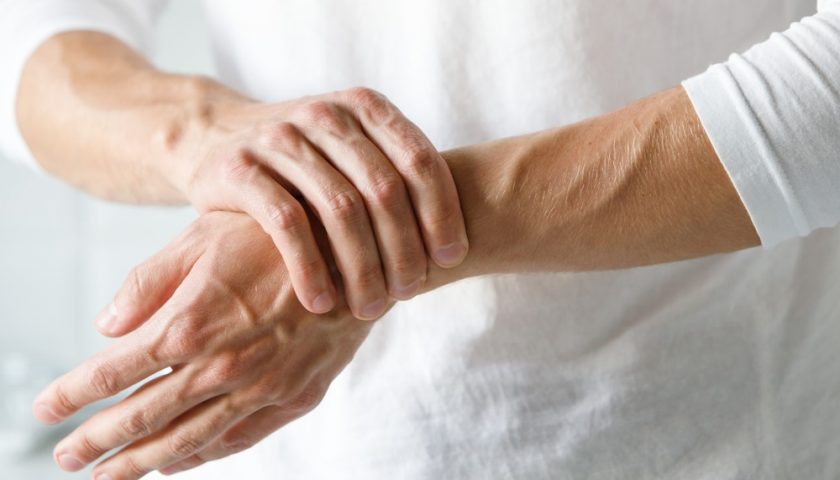Rheumatoid arthritis is a chronic joint disease that is caused by the inflammation in the joints and happens to be one of the most common forms of arthritis in adults. The inflammation of the joints occurs when the body alerts its defense immune system against any foreign attack, meaning infections or wounds. However in case of arthritis the inflammation itself is triggered as an attack to the joints.
Rheumatoid arthritis is a painful disease to live with. As an immune disease, an abnormal response from the immune defense system causes the thickening of the joint membrane that lines the joint. As the membrane expands the bone and cartilage of the joint starts getting affected. With RA smaller joints are affected such as hands, wrists, feet, ankles or any other particular joint of the body. However, even in the smallest joint, moving can be very uncomfortable and causes disability.
The symptoms of rheumatoid arthritis interferes with many people’s ability to work or move in their daily routines. On an average the life expectancy for people with RA is much less than the general population.
The disease itself is not life threatening or fatal however it gives rise to many other related conditions that contribute to earlier deaths. People with RS cannot normally carry out simple chores and find difficulty in walking, dressing, washing themselves, standing or even going to the washroom by themselves. Once the RA starts to develop, they require extra pairs of hands in their small day to say chores. This is why many people with RA are unable to even work for themselves.
According to the top reviewed Orthopedic Surgeon in Lahore, Dr. Abubakar Atiq Durrani “RA affects people of all ages, ethnicities and groups. Even though most of the time (around 75%) of the time, the disease is more profoundly found in women, it is most likely to strike both men and women between the age of 35-50. Usually people who have RA are likely to have a close relative or someone in the family tree with this condition.”
Sadly there is no definite cure for RA, but early diagnosis can be one in order to control the effects of the disease later on in life. For example, in early aggressive therapy, that is soon after the diagnosis can slow down the process of inflammation and can prevent major complications, such as deformity, complete joint destruction and other painful complications.
How does it affect the entire body?
- The musculoskeletal structures are severely damaged. This is due to the shrinking of joints that happens within weeks of the first development of the diseases. Most of the time it happens in hands. This condition is also commonly referred to as atrophy. The structure of the hand changes and there can be chances of permanent deformity for a lifetime.
- There is an uneven skin due to the small nodules that develop just near the joint. These are commonly known as rheumatoid nodules are most noticeable when there is a flex as they happen to be just under the skin. Another skin condition, in which there are dark purplish areas on the skin as there has been weakened blood vessels that causes bleeding in the skin. This can often make the skin seem heavily bruised and painful.
- Heart attacks are more common in people with RA conditions. This is again due to the inflammation process. It usually causes mild symptoms but it can worsen overtime and can lead to poor heart function. The heart muscle, heart valves are usually the ones that are most damaged. This is why closely monitoring the cholesterol and cardiovascular health is very important.
- Usually due to inflammation, lungs become very stiff or scarred which leads to pulmonary fibrosis. This can have negative effects on breathing and cause lung infections too. You will also find rheumatoid nodules inflammation in the lung region.
- Blood vessels become troublesome and painful for people with RA when they are following near the skin. Purple patches or skin ulcers are the classic example of rupture blood vessels. It may be a minor issue in RA condition but it can lead to other painful events within the body.
- Eyes usually become dry in RA conditions. This is again due to the inflammation of the tear glands that is happening under. The severity of this condition depends on the parts of the eyes that are affected. An ophthalmologist’s attention is immediately required in such cases.
Typically people with RA condition start off with mild symptoms and then worsens over time. However before the disease completely flare-ups, taking precautionary measures can inactive the disease or really slow down the process. Consulting with certified rheumatologists related to this also helps in early detection and recovery.
